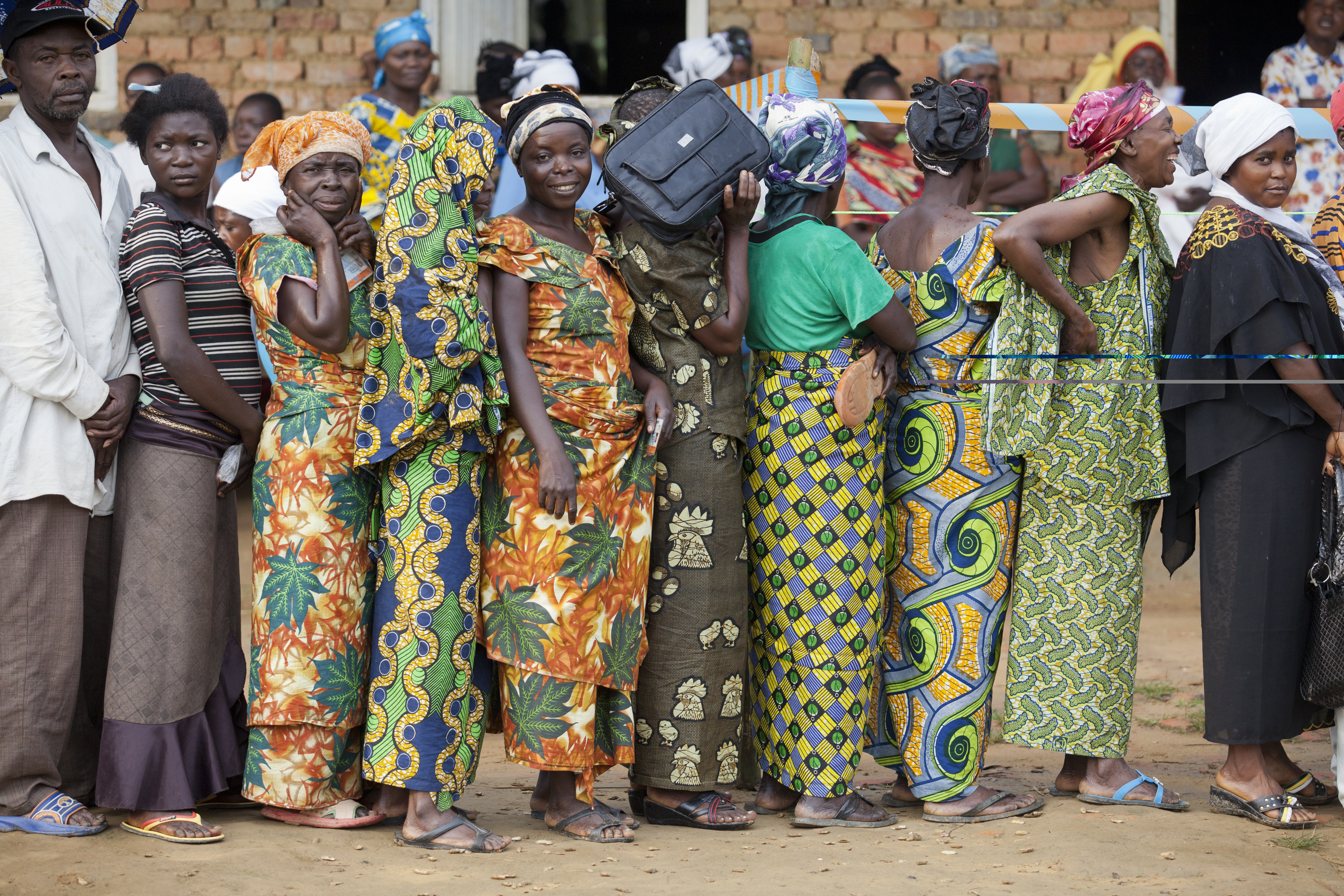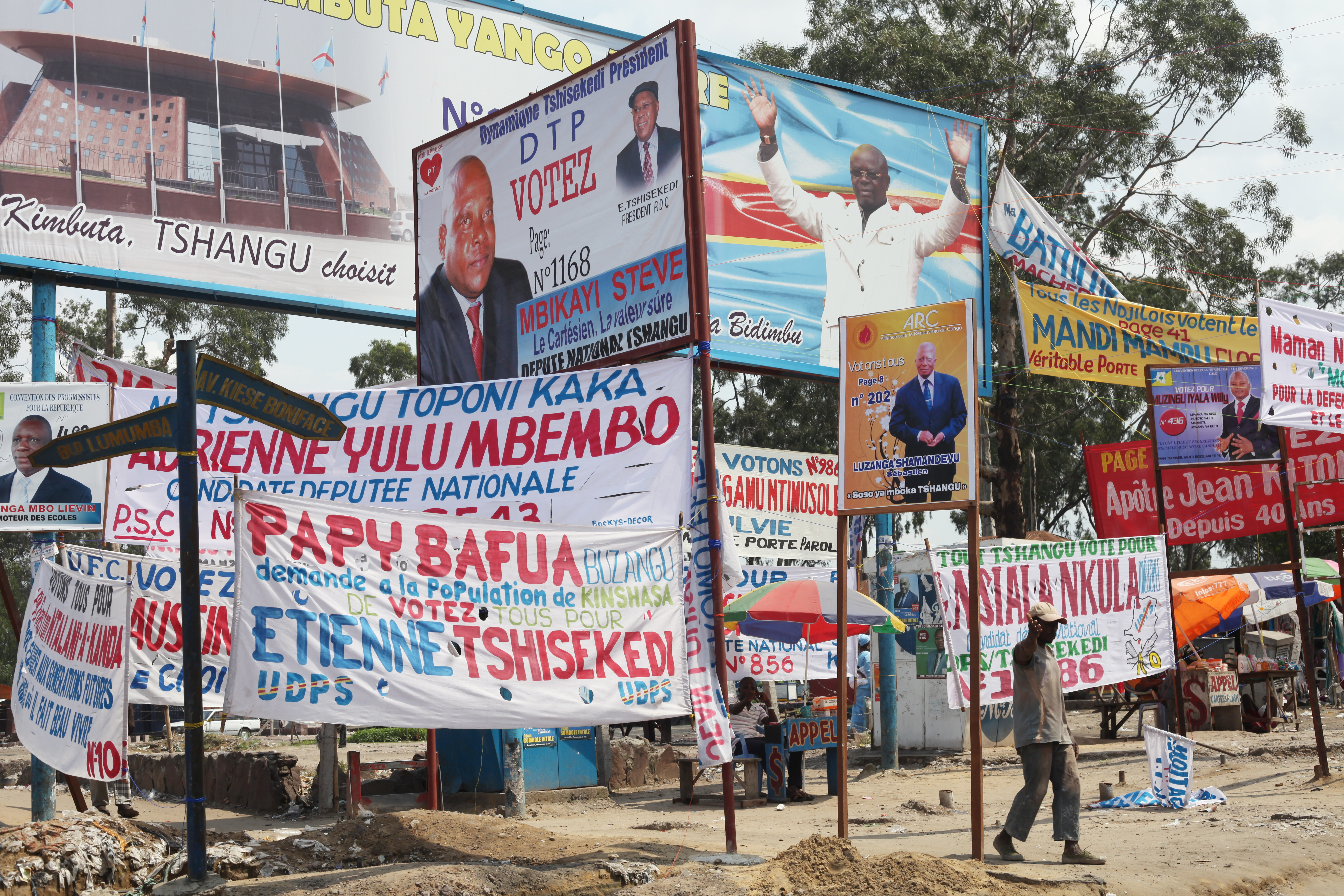2011 Democratic Republic of the Congo general election on:
[Wikipedia]
[Google]
[Amazon]
General elections were held in



Democratic Republic of the Congo
The Democratic Republic of the Congo (french: République démocratique du Congo (RDC), colloquially "La RDC" ), informally Congo-Kinshasa, DR Congo, the DRC, the DROC, or the Congo, and formerly and also colloquially Zaire, is a country in ...
on 28 November 2011; a facultative run-off on 26 February 2012 was shelved with a change in election laws.
The government passed laws to abolish the second round of the presidential election and tried to change the legislative electoral system from proportional to majority representation, which was strongly criticized by the opposition.
International organizations such as the United Nations and the European Union raised concerns about the transparency of the elections.
On 8 November 2011 opposition leader Étienne Tshisekedi
Étienne Tshisekedi wa Mulumba (14 December 1932 – 1 February 2017) was a Congolese politician and the leader of the Union for Democracy and Social Progress (UDPS), the main opposing political party in the Democratic Republic of the Congo (DRC ...
declared himself president saying the majority of people turned against President Kabila.
On 28 November 2011 elections were held under difficult conditions. Voting was characterized by incidents of violence throughout the country. Because of violence and delays in the delivery of ballot boxes elections were extended by a second day.
Candidates
# Jean Andeka (ANCC) # Adam Bombolé (independent) #Joseph Kabila
Joseph Kabila Kabange ( , ; born 4 June 1971) is a Congolese politician who served as President of the Democratic Republic of the Congo between January 2001 and January 2019. He took office ten days after the assassination of his father, Presi ...
(independent)
# François Nicéphore Kakese (URDC)
#Vital Kamerhe
Vital Kamerhe (born 4 March 1959) is a Congolese politician who is the chief of staff of President Félix Tshisekedi and leader of the Union for the Congolese Nation (UNC) opposition party. Previously he was the President of the National Assembl ...
(UNC)
# Oscar Kashala (UREC)
#Léon Kengo
Leon, Léon (French) or León (Spanish) may refer to:
Places
Europe
* León, Spain, capital city of the Province of León
* Province of León, Spain
* Kingdom of León, an independent state in the Iberian Peninsula from 910 to 1230 and again fro ...
(UFC)
#Antipas Mbusa
Antipas Mbusa Nyamwisi (born November 15, 1959) is a politician and former rebel leader in the Democratic Republic of the Congo. He leads the Forces for Renewal political party and was Minister of Decentralization and Urban and Regional Planning u ...
(independent)
#Nzanga Mobutu
François-Joseph Mobutu Nzanga Ngbangawe (born 24 March 1970 in Kinshasa) is a Congolese politician. A son of the long-time President Mobutu Sese Seko, he served in the government of the Democratic Republic of the Congo under President Joseph Kabi ...
(Udemo)
# Josué Alex Mukendi (independent)
#Étienne Tshisekedi
Étienne Tshisekedi wa Mulumba (14 December 1932 – 1 February 2017) was a Congolese politician and the leader of the Union for Democracy and Social Progress (UDPS), the main opposing political party in the Democratic Republic of the Congo (DRC ...
(UDPS)
Registration
DR Congo's NationalIndependent Electoral Commission
An election commission is a body charged with overseeing the implementation of electioneering process of any country. The formal names of election commissions vary from jurisdiction to jurisdiction, and may be styled an electoral commission, a c ...
has registered 32 million voters for the November elections.
Results



President
The first results released on 2 December 2011, with 15% of the vote counted (mostly in areas considered Kabila strongholds), gave Kabila only a narrow lead of 940,000 votes against 912,000 votes for UPDS leader Tshisekedi. With half the precincts counted, Kabila was leading with 4.9 million votes, or nearly 49%. His opponent Etienne Tshisekedi was trailing with 3.4 million votes, about 34%. However, this count did not include much of Kinshasa, where Tshisekedi was expected to have strong results. Kabila ceased all email and SMS services nationwide. It has been also said that over 5,000,000 of ballot papers were pre-ticked for the number 3 candidate (Kabila), but no formal actions were taken by the CENI. Some witnesses said that young men had beaten election officials who tried to bring in fraudulent ballots, which were subsequently burned. The announcement of final results was postponed to 8 December 2011; with over two thirds of the vote counted, Kabila led with 46% to Tshisekedi's 36%. The Independent National Electoral Commission declared Kabila as the winner on December 9. The result was put into question by theCarter Center
The Carter Center is a nongovernmental, not-for-profit organization founded in 1982 by former U.S. President Jimmy Carter. He and his wife Rosalynn Carter partnered with Emory University just after his defeat in the 1980 United States presid ...
as well as the archbishop of Kinshasa, Cardinal Laurent Monsengwo Pasinya
Laurent Monsengwo Pasinya (7 October 1939 – 11 July 2021) was a Congolese prelate of the Catholic Church. He was the Archbishop of Kinshasa from 2007 to 2018. He became a cardinal in 2010. He was widely recognized as a champion of peace, dialogu ...
, claiming too many irregularities occurred to assure that the results reflected the will of the people. The Carter Center indicated that ballots had been missing in some areas while in others Kabila achieved unrealistic results. Observers from the Carter Center noted that in some districts voter turnout was reported to be 100 percent, which is extremely unlikely. MONUSCO
The United Nations Organization Stabilization Mission in the Democratic Republic of the Congo or MONUSCO, an acronym based on its French name , is a United Nations peacekeeping force in the Democratic Republic of the Congo (DRC) which was estab ...
, the peacekeeping mission of the United Nations, also voiced concern about the results.
While Kabila admitted that some mistakes had been made in the process, he rejected concerns about the outcome. The result was confirmed by the Supreme Court of the Democratic Republic of Congo.
Jerome Kitoko, President of the Supreme Court, announcing the official results proclaimed Kabila to be the winner of the Presidential election.
National Assembly
Aftermath
The rebels in the 2012 East D.R. Congo conflict said Kabila was not the legal winner of the election and must resign.References
{{Democratic Republic of the Congo elections Elections in the Democratic Republic of the CongoGeneral election
A general election is a political voting election where generally all or most members of a given political body are chosen. These are usually held for a nation, state, or territory's primary legislative body, and are different from by-elections ( ...
DR Congo
The Democratic Republic of the Congo (french: République démocratique du Congo (RDC), colloquially "La RDC" ), informally Congo-Kinshasa, DR Congo, the DRC, the DROC, or the Congo, and formerly and also colloquially Zaire, is a country in ...
Presidential elections in the Democratic Republic of the Congo
Election and referendum articles with incomplete results